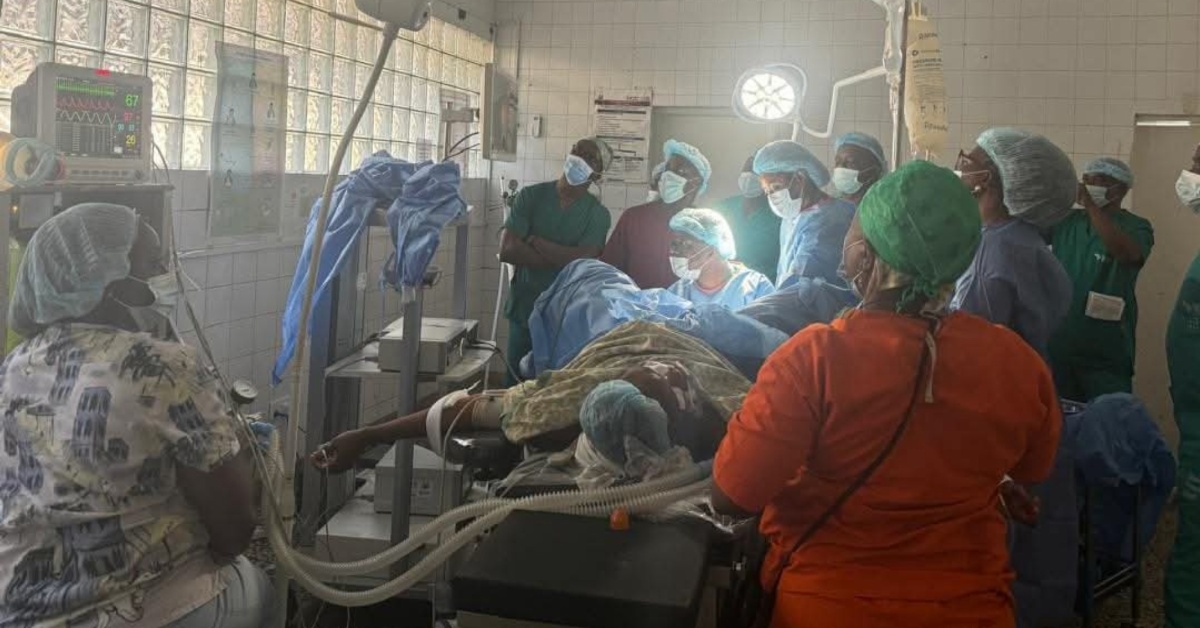The Princess Christian Maternity Hospital (PCMH) has introduced laparoscopic surgeries, marking a groundbreaking achievement in Sierra Leone’s healthcare system.
Over the past two days, gynecologists at the facility have successfully performed minimally invasive procedures to treat various gynecologic conditions.
This milestone was made possible by the installation of a state-of-the-art laparoscope, a cutting-edge medical device that enables surgeons to perform operations through tiny incisions rather than large cuts.
This “keyhole surgery” technique uses fiber-optic instruments to access deep internal structures while projecting high-definition images onto monitors, allowing for precise, minimally invasive interventions.
The benefits of laparoscopic surgery are profound, including shorter recovery periods, reduced pain, and fewer risks of complications.
The adoption of this advanced technology at PCMH, a public healthcare facility, ensures that more Sierra Leoneans can access high-quality care previously limited to private institutions or unavailable locally.
The introduction of this innovative practice is the result of collaborative efforts involving the Ministry of Health (MOH), the Department of Obstetrics and Gynecology, the University of Sierra Leone Teaching Hospitals Complex (USLTHC), PCMH management, and Doctors with Africa CUAMM.
These partnerships have been instrumental in equipping the hospital with modern tools and training healthcare professionals to enhance their surgical skills, particularly in minimally invasive procedures.
This development represents a significant step forward for obstetrics and gynecology in Sierra Leone, not only improving diagnostics and patient outcomes but also advancing the training of specialists and residents. It underscores the country’s commitment to elevating maternal and reproductive health standards and providing accessible, quality healthcare for all.
PCMH’s leadership in adopting such innovative practices serves as a model for other public healthcare facilities. By setting this precedent, the hospital is paving the way for a healthier and more equitable future for Sierra Leoneans.
This achievement was made possible through the unwavering efforts of numerous stakeholders, including the MOH leadership, USLTHC Chairperson, CUAMM representatives, PCMH management, and the dedicated staff comprising doctors, nurses, midwives, and biomedical teams. Their collective contributions have laid the foundation for a transformative era in Sierra Leone’s healthcare landscape.











